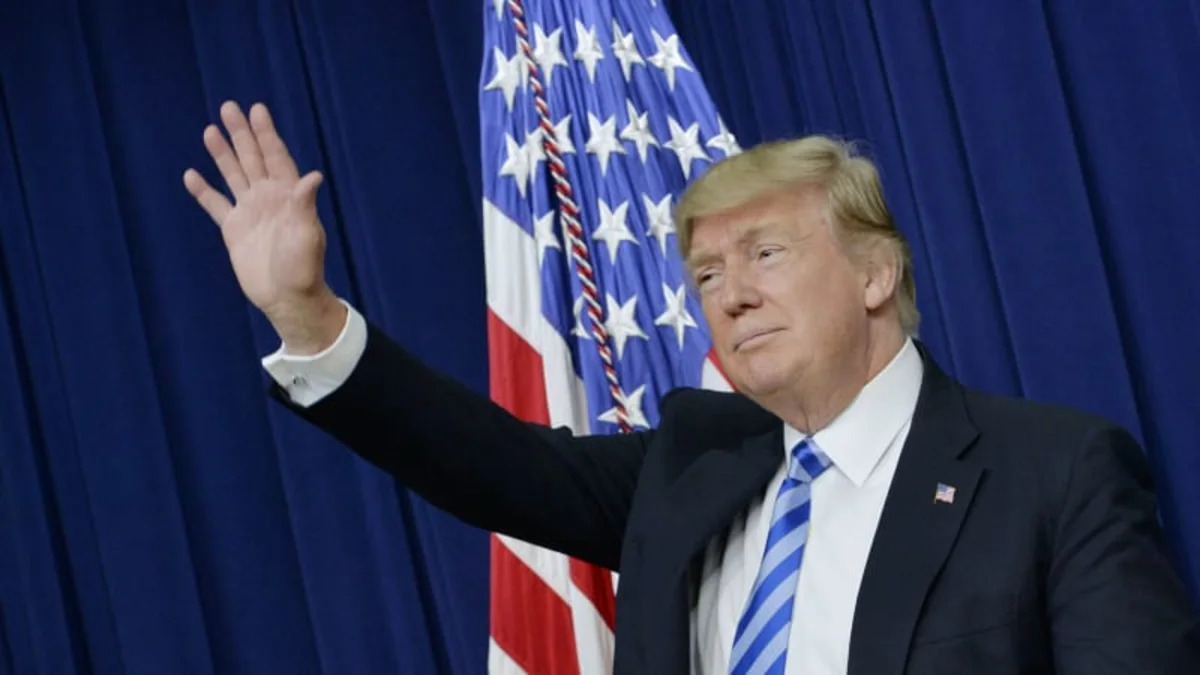President Donald Trump is pulling the US out of the Paris climate agreement, despite the urgings of numerous advisers – Secretary of State Rex Tillerson, Tesla CEO Elon Musk, and his own daughter Ivanka Trump included. Even oil industry leaders wanted the US to remain. Exxon's environmental manager Peter Trelenberg penned a letter to Trump in which he states, "It is prudent that the United States remain a party to the Paris agreement to ensure a level playing field, so that global energy markets remain as free and competitive as possible." Shell CEO Ben van Beurden tells NPR, "We believe that the world needs to go through an energy transition to prevent a very significant rise in global temperatures. And we need to be part of that solution in making it happen."
Of course, a lot of that has to do with oil companies' larger energy strategies as they face a downturn in the price of oil, and natural gas and renewable energies have a part to play. Because of that, the US needs to have leverage in the global environmental arena. "It cannot be in the interest of the United States to put itself offside for such an important, societal debate," says van Beurden. He adds that "we all want in that respect the United States to have a strong, meaningful and impactful voice at all tables around the world. Pulling out of Paris, in that sense, is incompatible with that goal."
So what happens to the automotive industry without a US seat at that table? Automakers have already asked for more wiggle room with CAFE standards, but the amount of investment and planning manufacturers have already put into cleaner cars has a momentum of its own. Trump won't be president forever, and the next administration could put environmental measures back into place. Automakers don't want to get caught off guard if and when that happens. In the meantime, it seems that California might strengthen its own emissions rules, which would influence the plans of any automaker that wants to sell cars there. A fair share of customers will also continue to demand greener cars from car companies.
In the greater scheme, of course, backing out of the Paris accord could set the world back in avoiding global temperature rise and a resulting climate disaster. "Four years of the Trump administration may have only modest consequences, but eight years of bad policy would probably wreck the world's chances of keeping warming below the international target of 2 degrees Celsius," Michael Oppenheimer, professor of geosciences and international affairs at Princeton University, tells Bloomberg. "The odds of our avoiding the climate-danger zone would fade to zero." As temperatures rise, we could expect more severe weather, species extinction, destruction of valuable crops - including food – and a rise in sea levels that would threaten coastal cities.
It also has geopolitical implications for the US. Harvard professor of environmental science and policy, John Holdren says, "it would also reduce US influence in the world on every other issue that Americans should care about." But that could mean climate and other policy chugs along without the US.
If the doom-and-gloom reports have you feeling down, National Geographic offers a number of reasons to maintain hope that climate progress will continue. These include examples of overachievement in China and India – progress in overcoming what were once considered overwhelming environmental and energy issues - that help balance out any environmental downturn in the US. Also, corporations, including those in the aforementioned energy and auto industries, are still committed to improvement. So are US cities and states, as well as the rest of the world.
The US was a leader in the Paris agreement. Without that leadership, the global climate plan weakens, and the US loses its voice. Worse, we could face a climate disaster that certainly wouldn't leave the US unscathed despite our government's choice to ignore it.
Related Video:


Sign in to post
Please sign in to leave a comment.
Continue